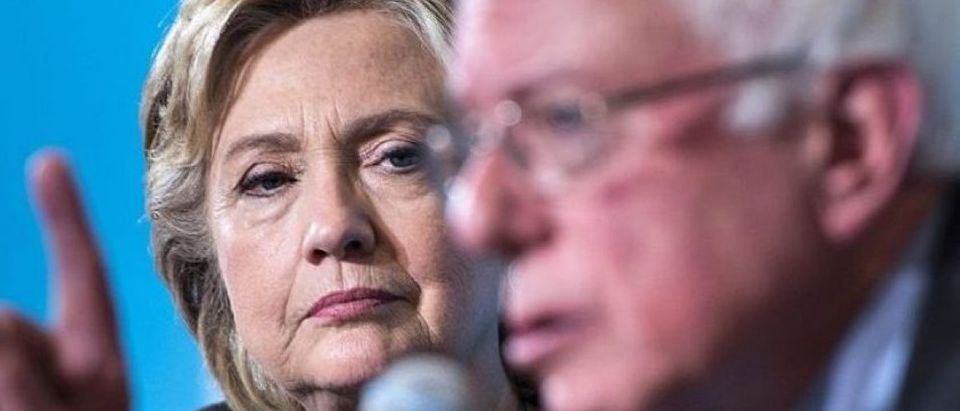Hillary Clinton’s top speech writer knew back in 2014 that the former secretary of state would be asked tough questions about her paid Wall Street speeches. And so the scribe, Dan Schwerin, included a passage in a speech Clinton gave to Deutsch Bank that the campaign could cite down the road to show that the former secretary of state was tough on the big banks.
That’s one of many nuggets from an enlightening email thread released on Thursday by WikiLeaks. The chain is from the hacked Gmail account of Clinton campaign chairman John Podesta.
Schwerin referred in the Nov. 20, 2015, email chain to a conversation that campaign staff had earlier that morning “about needing more arrows in our quiver on Wall Street.”
Clinton was paid an average of $225,000 for her private speeches. And many of those were given to Wall Street banks such as Deutsch Bank, Morgan Stanley, and Goldman Sachs. Clinton’s critics had argued that the speeches showed that she would not be tough on Wall Street if elected president.
In order to combat that narrative, Schwerin suggested that Clinton cite “a long riff” that he plugged in to an Oct. 7, 2014 speech that Clinton gave to Deutsch Bank executives.
“I wrote her a long riff about economic fairness and how the financial industry has lost its way, precisely for the purpose of having something we could show people if ever asked what she was saying behind closed doors for two years to all those fat cats,” Schwerin wrote. (emphasis added)
He also acknowledged something that Clinton has never admitted in public: that her closed-door remarks to Wall Street executives were not as tough as her campaign trail rhetoric.
“It’s definitely not as tough or pointed as we would write it now, but it’s much more than most people would assume she was saying in paid speeches,” Schwerin wrote.
He also suggested that the campaign could, “at some point,” consider sharing the speech passage with a friendly reporter.
But Schwerin noted one downside.
“We could then be pushed to release transcripts from all her paid speeches, which would be less helpful,” he wrote, adding, with some apparent concern, that the option was “probably not disastrous.”
Brian Fallon, Clinton’s press secretary, supported the idea of selectively sharing favorable passages from Clinton’s Wall Street speeches with friendly reporters.
The Associated Press was working on an article about Clinton’s problematic Wall Street ties, he wrote.
But Fallon suggested that the campaign use that AP piece “to our advantage to pitch someone to do an exclusive by providing at least the key excerpts from this Deutsche Bank speech.”
“In doing so, we could have the reporting be sourced to a ‘transcript obtained by [news outlet]’ so it is not confirmed as us selectively providing one transcript while refusing to share others,” he wrote.
Clinton’s paid speeches did not become a major campaign issue until Jan. 2016. When she was finally asked by The Intercept’s Lee Fang at a campaign event in January if she would release the speech transcripts, Clinton laughed and turned away.
Clinton was asked again about releasing the transcripts in February at a debate hosted by MSNBC.
“Are you willing to release the transcripts of all your paid speeches? We do know through reporting that there were transcription services for all of those paid speeches. In full disclosure, would you release all of them?” moderator Chuck Todd asked.
“I will look into it. I don’t know the status, but I will certainly look into it,” Clinton said.
As the Schwerin email thread shows, the Clinton campaign appears to have already had transcriptions of Clinton’s speeches at its fingertips.
Clinton never did release the speeches. But highlights of the events were finally revealed last week in the first WikiLeaks dump of emails hacked from Podesta’s account.
They were generally regarded as deferential to Wall Street.



